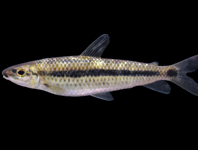Abstract
Western Palaearctic species of the genus Triphosa Stephens, 1829 are revised with focus on the Middle East and Central Asia. The analysis is based on the morphological examination (wing pattern and genitalia) of the type series of most species, as well as of large series of additional material. Additionally, DNA barcode data were used as an extra line of information. As result, Triphosa agnata Le Cerf, 1918 syn. n. is synonymized with T. sabaudiata (Duponchel, 1830), the taxonomy of the enigmatic Triphosa taochata Lederer, 1870 is clarified, and two species are described as new to science: T. silviae sp. n. and T. lecerfi sp. n.. Hydria ravulata (Staudinger, 1892) comb. rev., is transferred from Triphosa to the genus Hydria. Lectotypes are designated for Triphosa taochata and Hydria ravulata. Wing pattern, genitalia and diagnostic characters of all examined species are illustrated and the distribution data shown on the map.
References
Choi, S.W. (2006) Taxonomic revision of the genera Pareulype Herbulot and Pelurga Hübner (Lepidoptera, Geometridae) in Korea. Integrative Biosciences, 10, 103–108.
https://doi.org/10.1080/17386357.2006.9647289
Duponchel, P.A.J. (1830) Godart, J.B. & Duponchel, P.A.J., Histoire naturelle des lépidoptères ou papillons de France, 8 (1), 1–598.
https://doi.org/10.5962/bhl.title.9257
Ebert, G. (Ed.) (2001) Die Schmetterlinge Baden-Württembergs. Band 8–Nachtfalter. Ulmer, Stuttgart (Hohenheim), 541 pp. [541 S]
Evenhuis, N.L. (2007) The Insect and Spider Collections of the World website of the Bishop Museum, Honolulu, Hawaii. Available from: http://hbs.bishopmuseum.org/codens/codens-r-us.html (accessed 14 May 2018)
Hausmann, A. & Viidalepp, J. (2012) Larentiinae I. In: Hausmann, A. (Ed.), The Geometrid Moths of Europe. Vol. 3. Apollo Books, Vester Skerninge, 743 pp.
Hausmann, A., Miller, S.E., Holloway, J.D., deWaard, J., Pollock, D., Prosser, S.W.J. & Hebert, P.D.N. (2016) Calibrating the taxonomy of a megadiverse family on BOLD: 3000 DNA barcodes from geometrid type specimens (Lepidoptera, Geometridae). Genome, 59 (9), 671–684.
https://doi.org/10.1139/gen-2015-0197
Heinicke, W. & Müller, B. (1976) Spanner. In: von Koch, M. (Ed.), Wir bestimmen Schmetterlinge. Band IV. 2nd Edition. Neumann Verlag, Radebeul, pp. 1–291. [S1–291]
Herbulot, C. (1962) Mise a jour de la liste des Geometridae de France. Alexanor, 2 (4), 117–124.
Ivanova, N.V., deWaard, J.R. & Hebert, P.D.N. (2006) An inexpensive, automation-friendly protocol for recovering high-quality DNA. Molecular Ecology Notes, 6, 998–1002.
https://doi.org/10.1111/j.1471-8286.2006.01428.x
Kimura, M. (1980) A simple method for estimating evolutionary rates of base substitutions through comparative studies of nucleotide sequences. Journal of Molecular Evolution , 16, 111–120.
https://doi.org/10.1007/BF01731581
Kumar, S., Stecher, G. & Tamura, K. (2016) MEGA7: Molecular Evolutionary Genetics Analysis version 7.0 for bigger datasets. Molecular Biology and Evolution, 33, 1870–1874.
https://doi.org/10.1093/molbev/msw054
Le Cerf, F. (1918) Description d`une Triphosa nouvelle de Corse et obseravtions sur les formes apparentees a Triphosa sabaudiata Dup. [Lépidopt. Geometridae]. Bulletin du Muséum national d'histoire naturelle, 403–417.
Lederer, J. (1870) Contributions à la Faune des Lépidoptères de la Transcaucasie. Annales de la Societé Entomologique de Belgique, 13, 17–54.
Leraut, P. (2008) Une nouvelle espèce du genre Triphosa Stephens, 1829 (Lep., Geometridae). Bulletin de la Société entomologique de France, 113 (4), 452–454.
Linnaeus, C. (1758) Caroli Linnaei Systema naturae per Regna tria Naturae, secundum classes, ordines, genera, species, cum characteribus, differentiis, synonymis, locis. Tomus I. Editio decima, reformata. Impensis direct. Laurentii Salvii, Holmiae, 823 pp.
https://doi.org/10.5962/bhl.title.542
Õunap, E., Viidalepp, J. & Truuverk, A. (2016) Phylogeny of the subfamily Larentiinae (Lepidoptera: Geometridae): integrating molecular data and traditional classifications. Systematic Entomology, 41, 824–843.
https://doi.org/10.1111/syen.12195
Prosser, S.W.P., deWaard, J.R., Miller, S.E. & Hebert, P.D.N. (2016) DNA barcodes from century-old type specimens using next-generation sequencing. Molecular Ecology Resources, 16 (2), 487–497.
https://doi.org/10.1111/1755-0998.12474
Robinson, G.S. (1976) The preparation of slides of Lepidoptera genitalia with special reference to the Microlepidoptera. Entomologist’s Gazette, 27, 127–132.
Saitou, N. & Nei, M. (1987) The neighbor-joining method: A new method for reconstructing phylogenetic trees. Molecular Biology and Evolution, 4, 406–425.
Schmidt, O. (2017) Comparison of the structure and musculature of male terminalia in the tribes Operophterini, Phileremini and Triphosini (Lepidoptera: Geometridae: Larentiinae). Zootaxa, 4237 (2), 347–358.
https://doi.org/10.11646/zootaxa.4237.2.8
Scoble, M.J. (1999) Geometrid Moths of the World: A Catalogue (Lepidoptera, Geometridae). Vol. 1 & 2. CSIRO Publishing, Collingwood, Victoria and Apollo Books, Stenstrup, 1200 pp.
Scoble, M.J. & Hausmann, A. (2007) Online list of valid and available names of the Geometridae of the World. [updated]. Available from: http://www.herbulot.de/globalspecieslist.htm (accessed 18 November 2018)
Sinev, S.Y. (2008) Catalogue of the Lepidoptera of Russia. KMK Scientific Press, St.Petersburg-Moscow, 424 pp.
Staudinger, O. (1892) Neue Arten und Varietäten von paläarktischen Geometriden aus meiner Sammlung. Deutsche entomologische Zeitschrift, Iris, 5, 141–260.
Stephens, J.F. (1829) The nomenclature of British insects; being a compendious list of such species as are contained in the Systematic Catalog of British insects. Baldwin, London, 68 pp.
Su, Y.N. (2016) A simple and quick method of displaying liquid-preserved morphological structures for microphotography. Zootaxa, 4208 (6), 592–593.
https://doi.org/10.11646/zootaxa.4208.6.6
Tutt, J.W. (1896) British Moths. Routledge, London, 368 pp.
Viidalepp, J. (1996) Checklist of the Geometridae (Lepidoptera) of the former U.S.S.R. Apollo Books, Stenstrup, 111 pp.
Viidalepp, J. (2011) A morphological review of tribes in Larentiinae (Lepidoptera: Geometridae). Zootaxa, 3136, 1–44.
Wanke, D. & Rajaei, H. (2018) An effective method for the close up photography of insect genitalia during dissection: a case study on the Lepidoptera. Nota lepidopterologica, 4 (1), 219–223.
https://doi.org/10.3897/nl.41.27831
Wanke, D. & Rajaei, H. (2019) Confusing syntypes—Appearing issues during the investigation of Triphosa taochata Lederer, 1870 (Geometridae, Larentiinae). Spixiana. [accepted]
Xue, D.Y. & Zhu, H.F. (1999) Fauna Sinica Insecta. Vol. 15. Lepidoptera: Geometridae: Larentiinae. Science Press, Beijing, 1099 pp.

